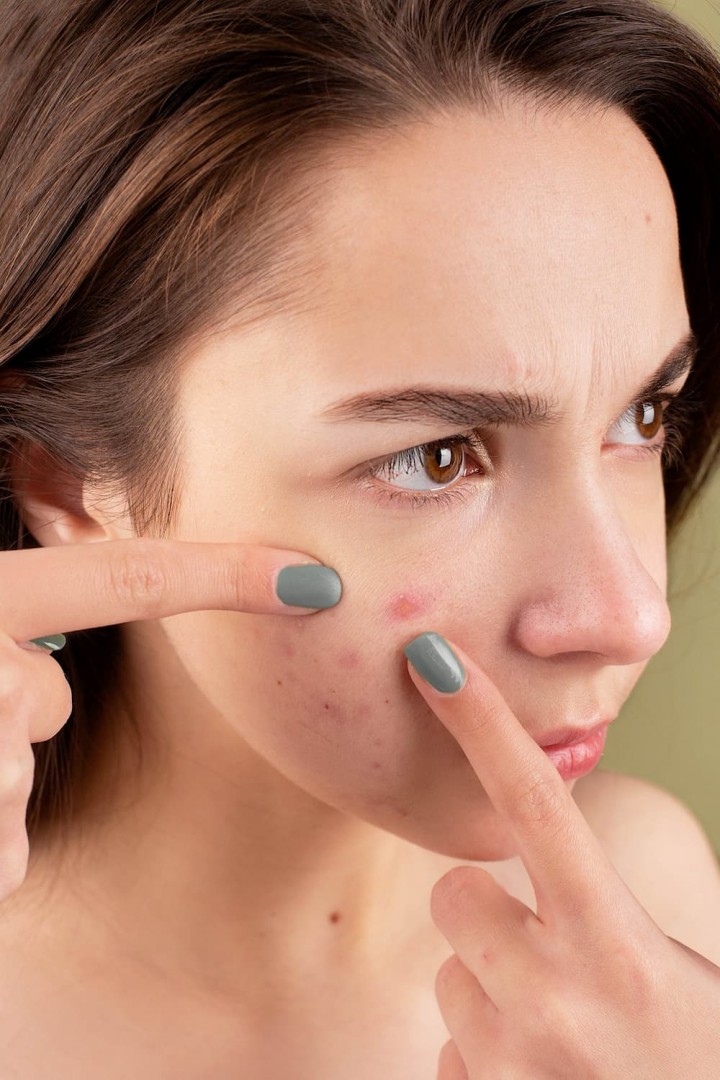
Have you noticed that your skin changes when you're feeling frantic and stressed? You're not alone, with several studies concluding that stress can take a toll on your dermatological health. In this article we find out why stress affects skin and a few ways to prevent skin problems.
What is Stress?
Quite simply, stress is how we respond to challenges and dangerous situations. You might feel stressed at work, when facing a tough exam or dealing with relationship issues. Many other scenarios can cause a person to feel stressed such as financial and job insecurity.
Our bodies respond to stress by kick-starting the nervous system and pumping hormones around the body. These hormones, which include cortisol and adrenaline, allow us to take action; this is referred to as the "fight or flight" response.
The physical signs of stress include high blood pressure, a racing heart, headaches, insomnia, while emotional signs include anger, depression, a feeling of overwhelm or general moodiness.
How Stress Affects Skin
Dermatologist Flor Mayoral says not only does stress affect our physical and psychological health, it can also wreak havoc on our skin.
"In treating hundreds of patients over the years with skin conditions such as eczema, rosacea, acne and psoriasis, I have seen firsthand how stress can aggravate the skin and trigger unexpected flare-ups that, in effect, create more stress for patients," said Mayoral in a sciencedaily.com article.
A 2001 study, published in the Archives of Dermatology, showed that stress affects the skin's barrier function. This leads to water loss, which impairs the skin's ability to repair and regenerate. The study was applauded as the first to find a direct link between stress and the skin's functioning.
Blood vessels constrict in people who suffer from chronic stress, due to their increased production of stress hormones. This reduces blood flow to the skin's surface, leaving it dehydrated and sensitive. When stressed, the sebaceous glands also secrete more oil, which can clog pores leading to acne breakouts.
Source: esmi.com.au
Although having overactive oil glands is one of the signs of stress on your skin, there are several others that should not be ignored.
Signs of a Stressed Out Skin
Symptoms of stress are immediately visible in the face, especially through the signs of fatigue. Some people's eyes even become bloodshot due to stress. Although signs of stress are expressed through the face, they don't necessarily only appear there. Nails can become dry and brittle, hair may fall out or grow faster than normal, and you can even experience headaches due to stress.
Excessive stress can alter your facial expressions through tension in the facial muscles, especially around the eyes and forehead. A stressed person might laugh less or seem tired even without doing any work - this is because stress causes sleep disorders that reduce how much rest people get each night. Hyperthyroidism, high blood pressure, stomach ulcers or heart problems are among the negative effects of stress. Uncontrolled stress levels may also lead to an inflammatory skin condition.
Here are some ways stress manifests in your skin:
- Dark circles under your eyes
- Dry skin
- Skin rashes
- Uneven skin tone
- Premature aging like wrinkles
- Hair loss
- Easy bruising or bleeding due to low platelets in blood
- Makes acne worse
The presence of severely dry skin is one of the main causes of atopic dermatitis, a chronic skin condition without a cure. Apart from observing self-care measures like using mild soap and warm water when bathing, stress management techniques are also essential to treating this condition.
Stress Management Tips for Better Skin
While you may not be able to stop your skin from responding to stress, you can try a few stress management techniques to practise keeping calm.
Here are a few tips and techniques for staying stress-free:
- Stick to a healthy diet: A diet rich in omega-3 fatty acids and vitamin C assists with stress relief. Salmon and other fatty fish, nuts, yogurt, and citrus fruits should be part of your diet. And don't forget to drink plenty of water.
- Get enough sleep: Sleeping 7 to 8 hours a night reduces cortisol levels, repairs cells in the body, boosts energy levels and reduces feelings of anxiety and moodiness.
- Meditate: Sit in a quiet spot, close your eyes and quieten your mind. Meditation has been shown to significantly reduce stress and anxiety.
- Practise yoga: Several asanas are useful for managing stress. Our article "Yoga for Stress and Anxiety" is an excellent resource for combating stress through this healing modality.
- See a counsellor: Consulting a counsellor, psychotherapist or life coach can help put things in perspective. A professional will also be able to teach you relaxation and conflict resolution techniques.
- Take time out: allocate time to be on your own and relax. You might book in for a massage, curl up on the couch with a book or unwind in a warm bath.

You should pay attention to how signs of stress affect you when they occur. If the signs are temporary or sporadic, you don't have to do anything since they will disappear eventually. However, signs that frequently appear should be carefully handled, as they may affect your skin health. It is best to consult a natural health practitioner who specialises in stress management in such a case.
Originally published on Jul 10, 2013








